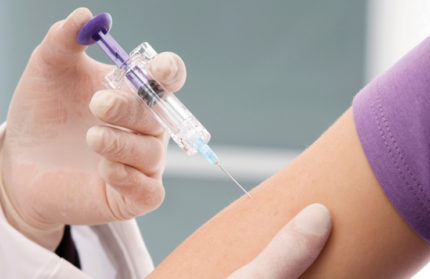What Is HPV and Why Is It a Problem?
HPV, or more specifically, human papilloma virus, is one of the most common sexually transmitted diseases (STDs), infecting almost 14 million people each year in the United States (about 79 million are currently infected). It’s so common that most people get it at some time in their lives. Although it often goes away on its own without causing problems, it can cause serious health issues.
 HPV is the virus that causes genital warts—difference from HIV and HSV (herpes). But—and this is an important “but”—it can do much more than that. In fact, an HPV infection can cause a variety of serious diseases or complications in both girls and guys.
HPV is the virus that causes genital warts—difference from HIV and HSV (herpes). But—and this is an important “but”—it can do much more than that. In fact, an HPV infection can cause a variety of serious diseases or complications in both girls and guys.
In females, HPV infection can cause problems with the cervix that may lead to cervical cancer. HPV infection also can cause problems that may lead to cancer in the vagina, vulva, anus, mouth and throat. And in males, HPV infection may lead to cancer in the penis, anus, mouth and throat. Approximately 17,600 women and 9,300 men are affected by cancers caused by HPV every year.
Both girls and guys can get HPV from sexual contact, including vaginal, anal and oral sex. It can be a silent or hidden infection, and most people who are infected don’t know they have it because they don’t notice any signs or symptoms. There’s no definitive test for HPV status.
People with HPV don’t always develop genital warts, but the virus is still in their system and could be causing damage. This means that people with HPV can pass the infection to others without knowing it.
Can HPV Be Prevented?
Because HPV can cause serious health problems, a vaccine is an important step in preventing infection and protecting against its spread. That’s why doctors recommend that all girls and guys get the vaccine. The recommended ages for vaccination for girls are from 11 or 12 through 26. For guys, from 11 or 12 through 21.
The vaccine is more effective at younger ages than at older ages. And vaccinating guys can help protect girls from the virus by decreasing the incidence of transmission.
The U.S. Food and Drug Administration (FDA) has approved the HPV vaccine, which has been available since 2006, as safe for both girls and guys ages 9 to 26. Two vaccines have FDA approval—Gardasil, for girls and boys, and Cervarix, for girls only. Both can prevent most cases of cervical cancer if given before a girl is exposed to the virus. Once infected, though, the vaccine might not be as effective or might not work at all.
How Does the Vaccine Work?
The HPV vaccine is given as three injections over six-months and is covered by most private insurance companies. The vaccine does not protect against strains of HPV that might have infected a person before getting the vaccine. Although very effective, the HPV vaccine is not a replacement for using condoms to protect against other strains of HPV and other STDs.
Being vaccinated before becoming sexually active is the most effective way to prevent HPV infection. But even after that time, the vaccine can help. It’s still the best way to protect against other strains of the virus that a person may not have come in contact with. Since the vaccine was introduced, HPV infection rates dropped almost 50 percent, despite only about one-third of girls in the U.S. having received all three injections.
The vaccine doesn’t protect against all types of HPV. Anyone who is sexually active should continue to get routine checkups at a doctor’s office or health clinic. Girls should get Pap smears when a doctor recommends it—usually around age 21 unless there are signs of a problem earlier. And guys should get periodic checkups.
Are There Side Effects?
Most side effects that people may get from the HPV vaccine are minor and include swelling or pain at the site of the shot, or feeling faint after getting the vaccine. As with other vaccines, there’s a small chance of an allergic reaction.
A few people have reported health problems after getting the shot. The FDA is monitoring the vaccine closely to make sure these are not caused by the vaccine itself. Most people have no trouble with the vaccine.
Protecting Yourself Against HPV
For people who are sexually active, condoms offer some protection against HPV. However, condoms can’t completely prevent HPV infections because hard-to-see warts can be outside the area covered by a condom, and the virus can infect people even when a partner doesn’t have a visible sign or symptom. And, of course, condoms can break. Spermicidal foams, creams and jellies have not been proven to protect against HPV or genital warts.
Certainly, abstaining from sex minimizes the chance of contracting HPV infections and other STDs. But, there are intimate activities that falls short of intercourse that can still put a teen (or anyone!) at risk. Human papillomavirus spreads by skin-to-skin contact.
If you have questions about the vaccine for yourself, your family or your partner or are concerned about STDs, talk to your doctor. Be aware, be educated and be careful!
 Tracie M. Safier, M.D., is with Nemours du Pont Pediatrics, Paoli, a primary care practice with the Nemours Health System. Dr. Safier received her medical degree from the Jefferson Medical College and has more than nine years of experience as a board-certified primary care pediatrician, caring for children and offering guidance to families.
Tracie M. Safier, M.D., is with Nemours du Pont Pediatrics, Paoli, a primary care practice with the Nemours Health System. Dr. Safier received her medical degree from the Jefferson Medical College and has more than nine years of experience as a board-certified primary care pediatrician, caring for children and offering guidance to families.
